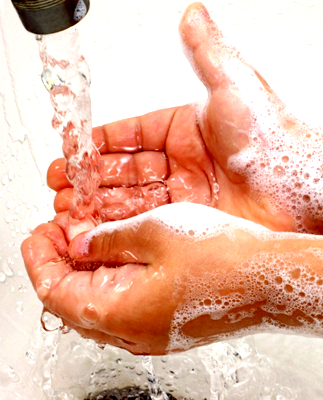Hundreds asked if hygiene helps or hinders
 A European team will conduct a study to see if our anti-bacterial, super-sanitary world could be doing more harm than good.
A European team will conduct a study to see if our anti-bacterial, super-sanitary world could be doing more harm than good.
With the incidence of auto-immune diseases on the rise in many developed countries, scientists in northern Europe are undertaking a major survey to determine whether standards of hygiene contribute to the development of diseases such as type 1 diabetes.
There has been no clear reason identified for the increase in such disease, but one idea has suggested the habit of eliminating bacteria in food and the environment infants inhabit may be depriving the immune system of the stimulus it needs to develop.
The EU-funded project called Diabimmune will now test the hygiene hypothesis.
Finland and its neighbouring countries will be the location for the tests.
The region was picked because of the high incidence of diabetes in Finland, while across the border in Russian Karelia, standards of hygiene are significantly lower, but the incidence of the disease is six times less frequent.
The ongoing project has already accumulated significant data. Researchers have been studying close to 2,000 children between 3 and 5 years old, as well as 300 babies up to 3 months old in each of the three countries. Participants have been followed for a period of three years to 2013.
Families are asked respond to a questionnaire covering their child’s home environment, contact with animals, diet, allergies and family predisposition to immune related disease. Blood and stool samples are being taken, along with allergy information. Researchers have even probed for the presence of dust under the bed.
The team is reportedly facing a long period of analysis, poring over thousands of samples to determine if there are any common factors between hygiene and auto-immune illness.
The following video provides extra details on the initiative:







 Print
Print